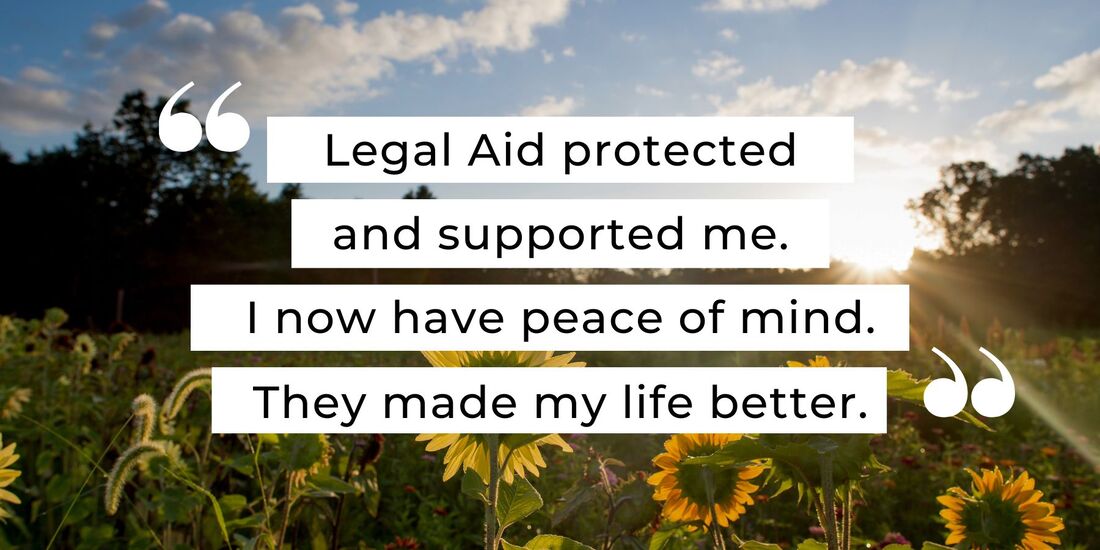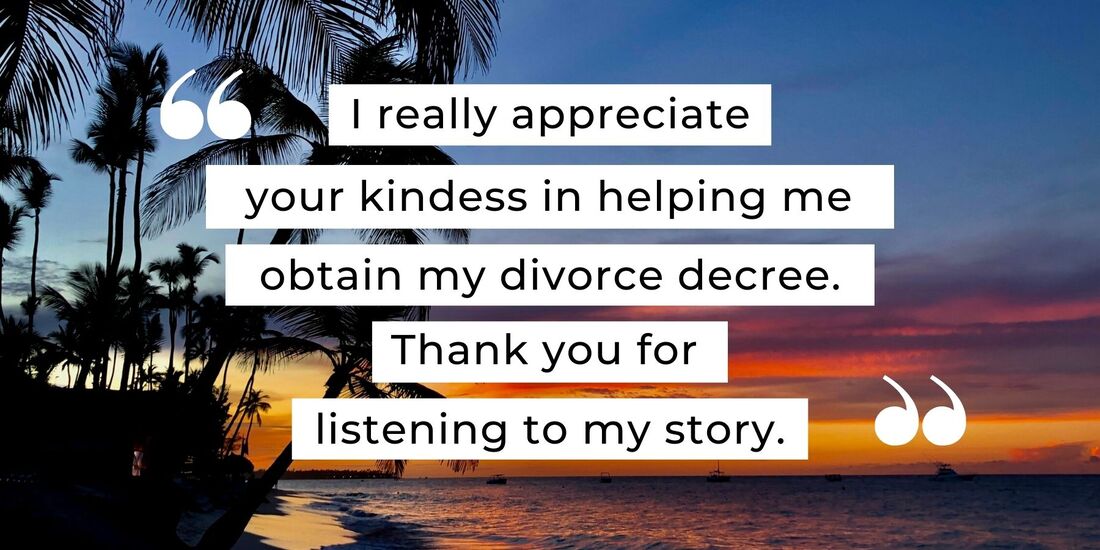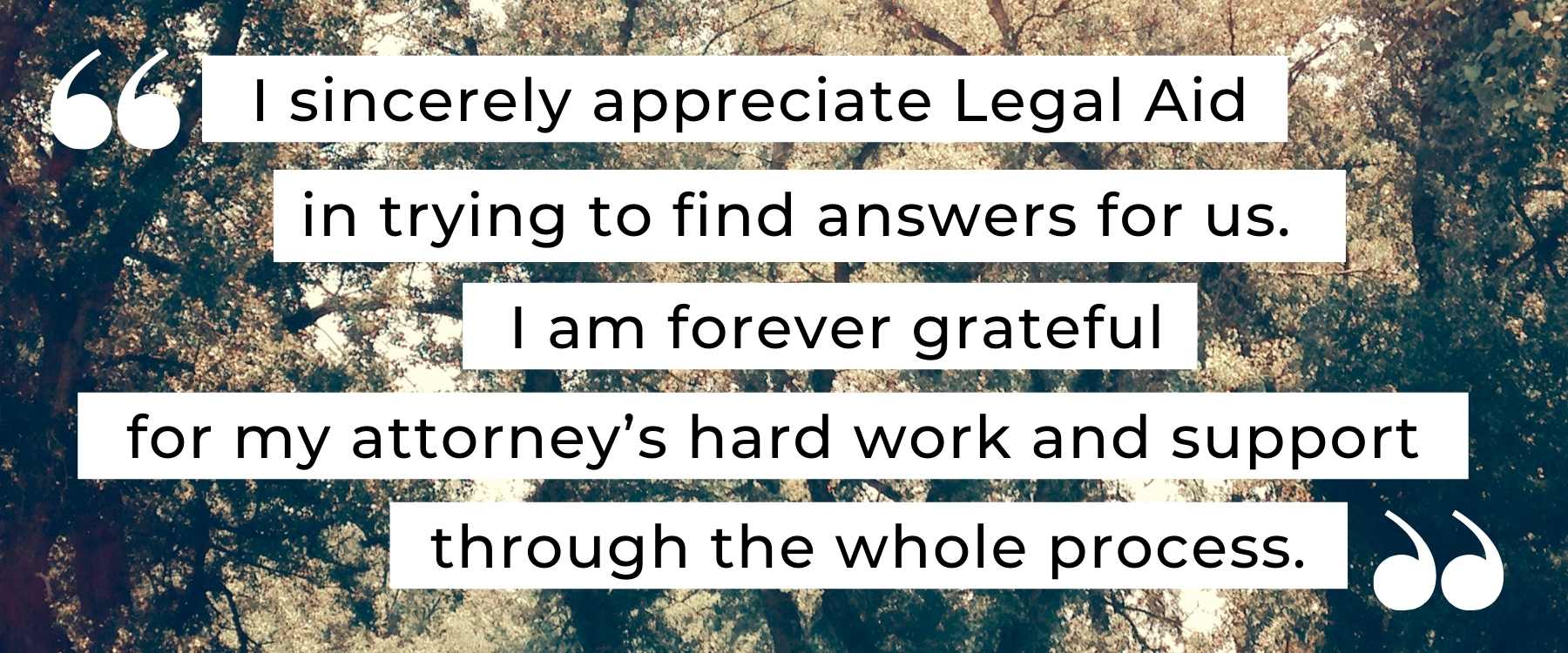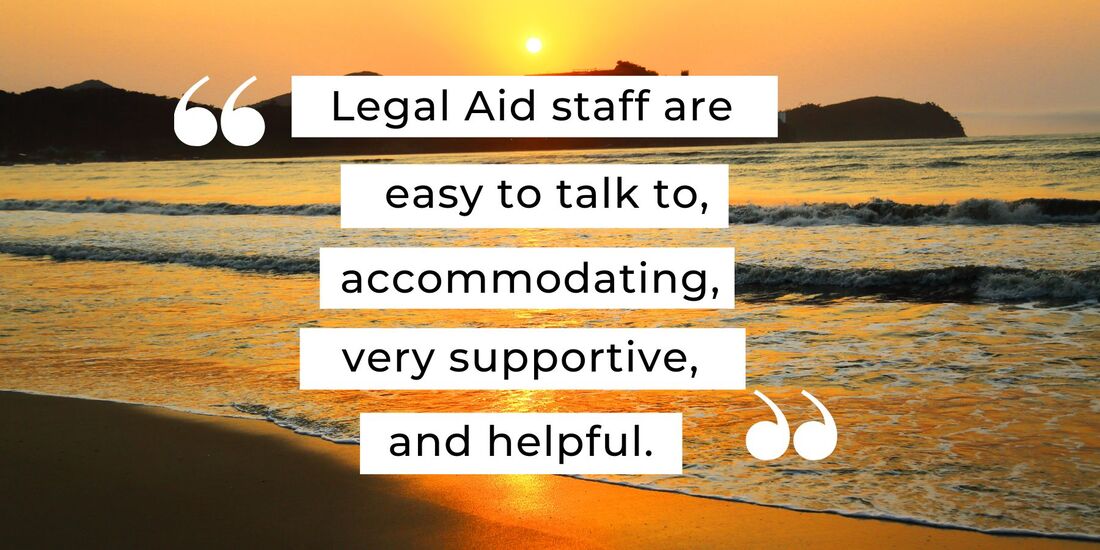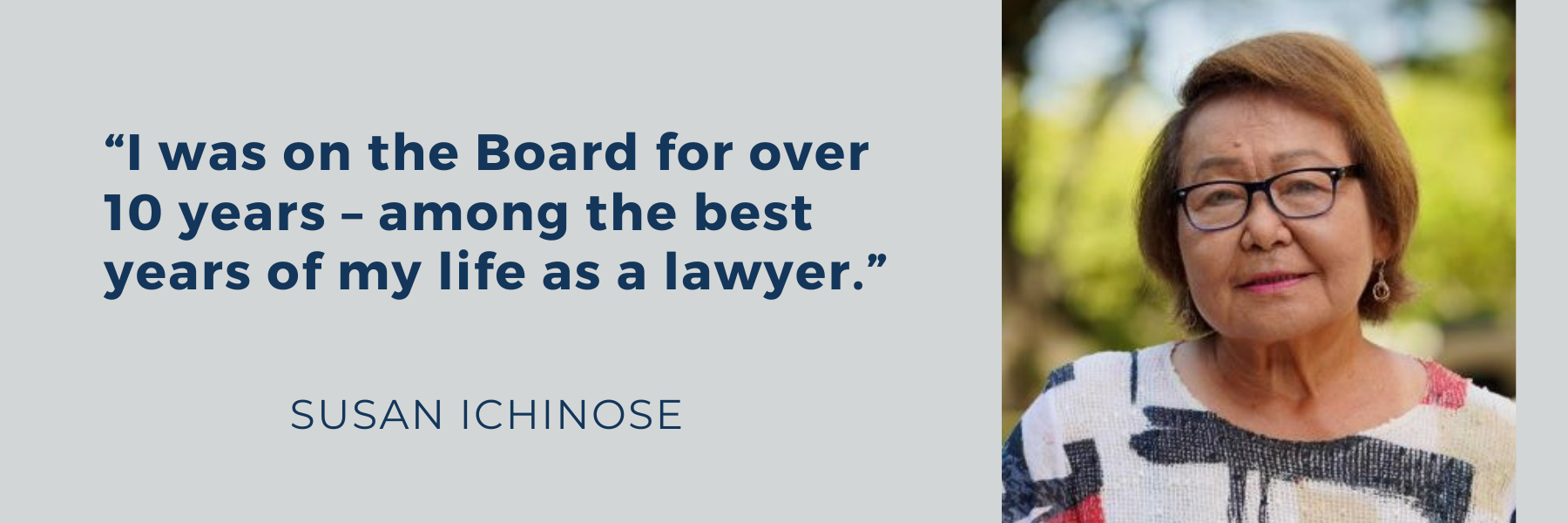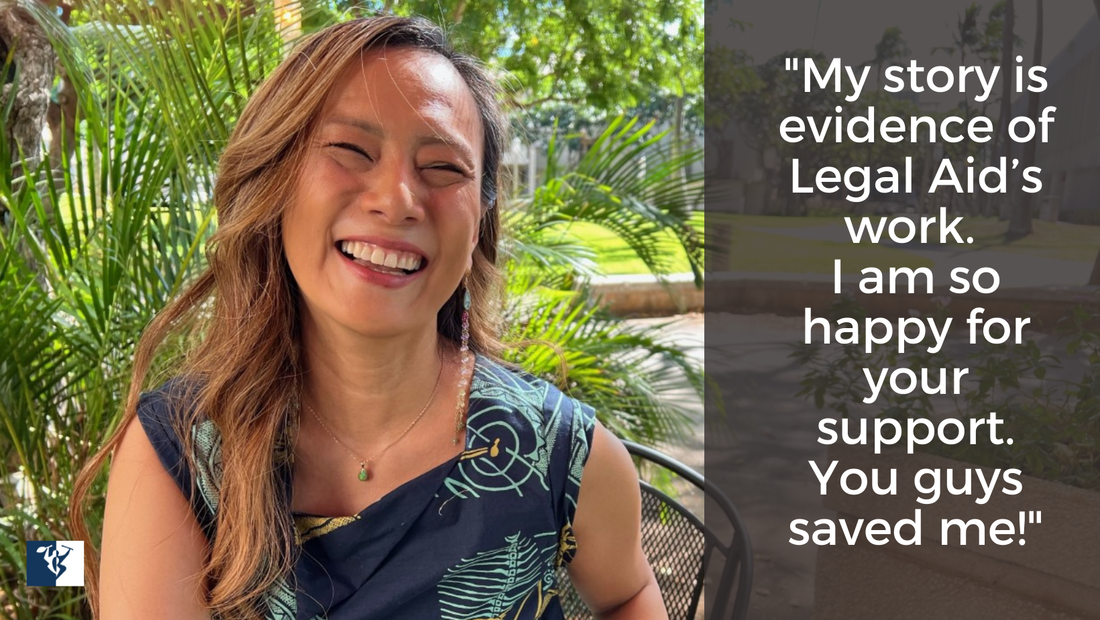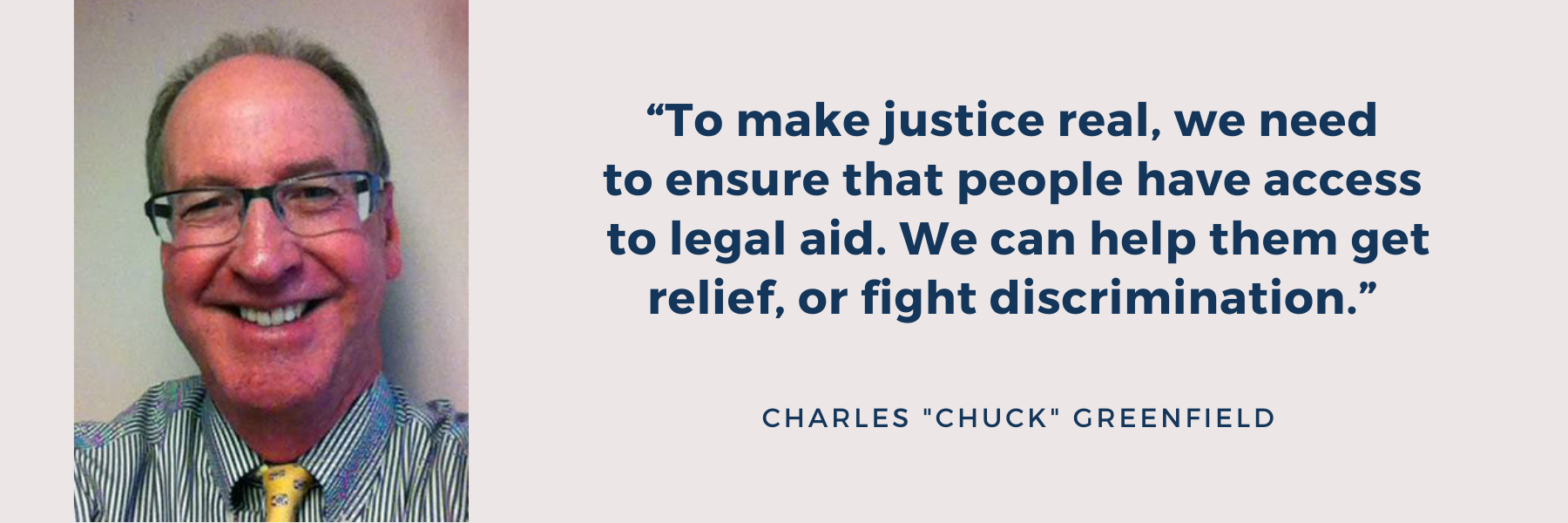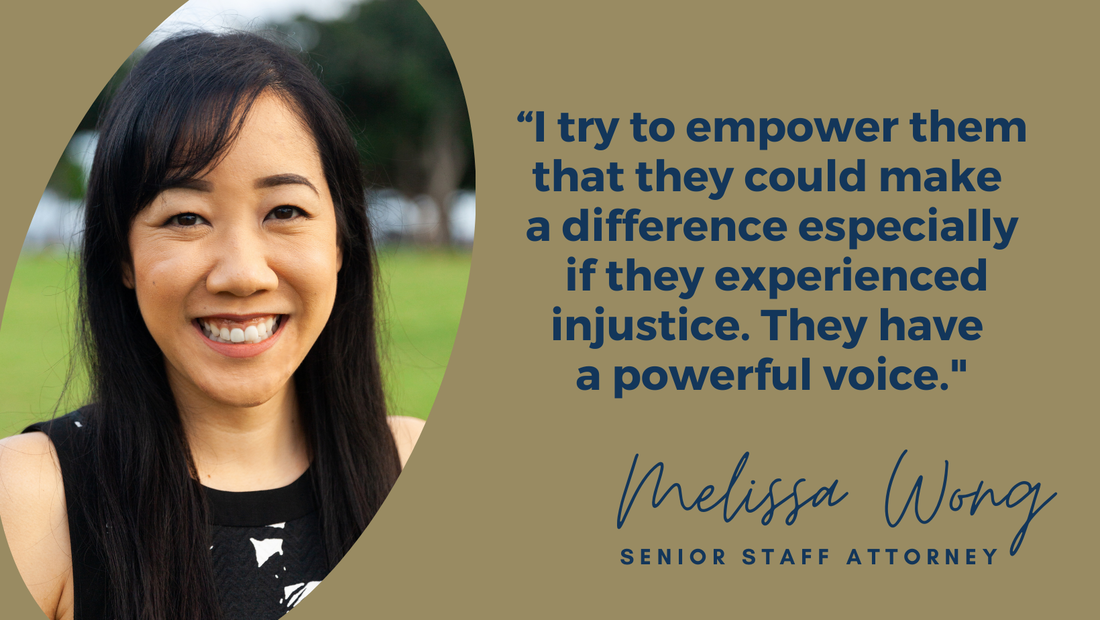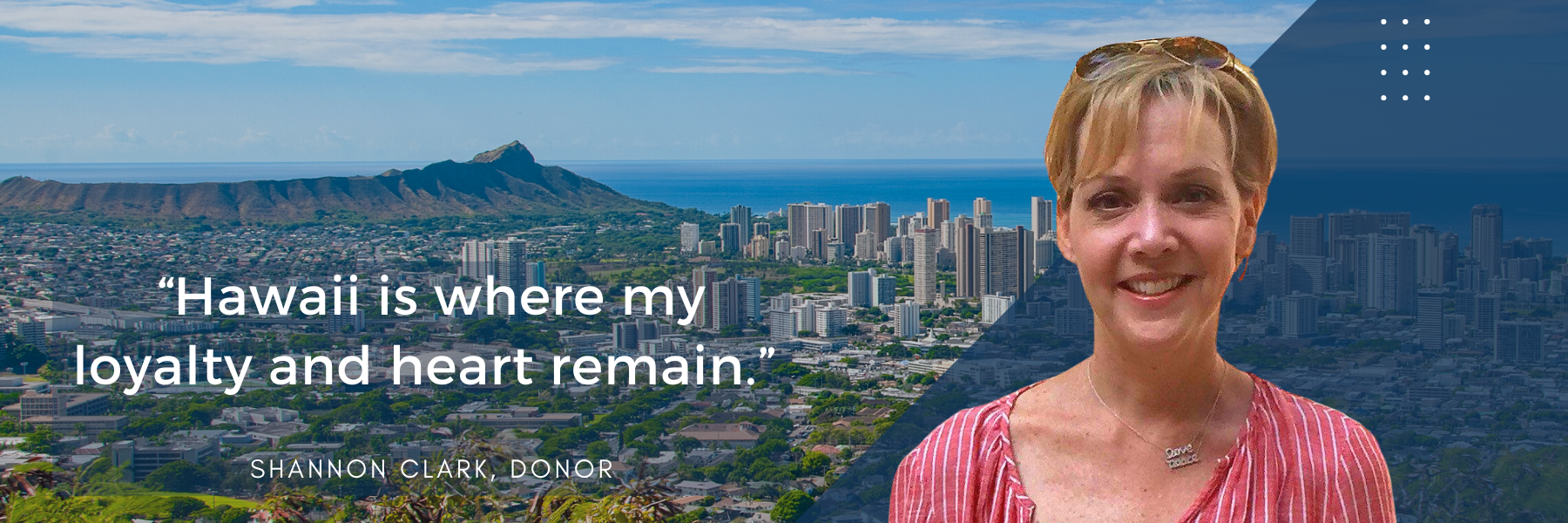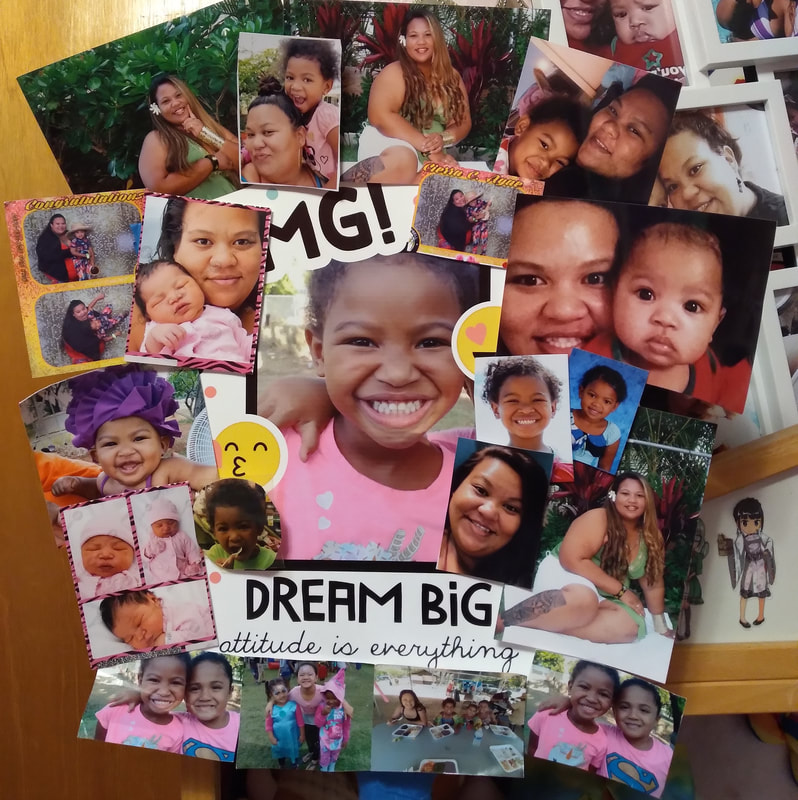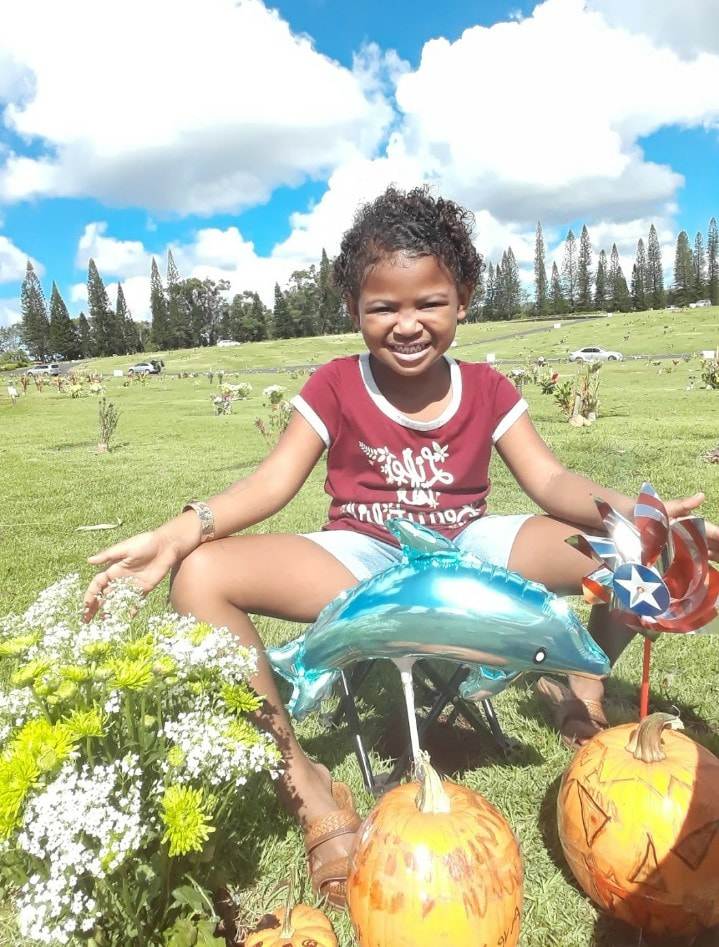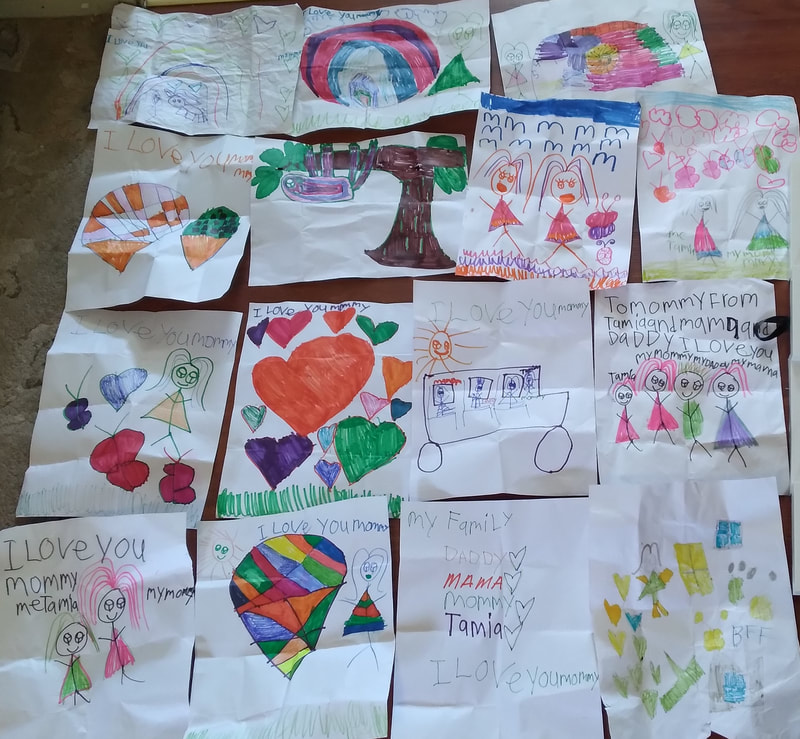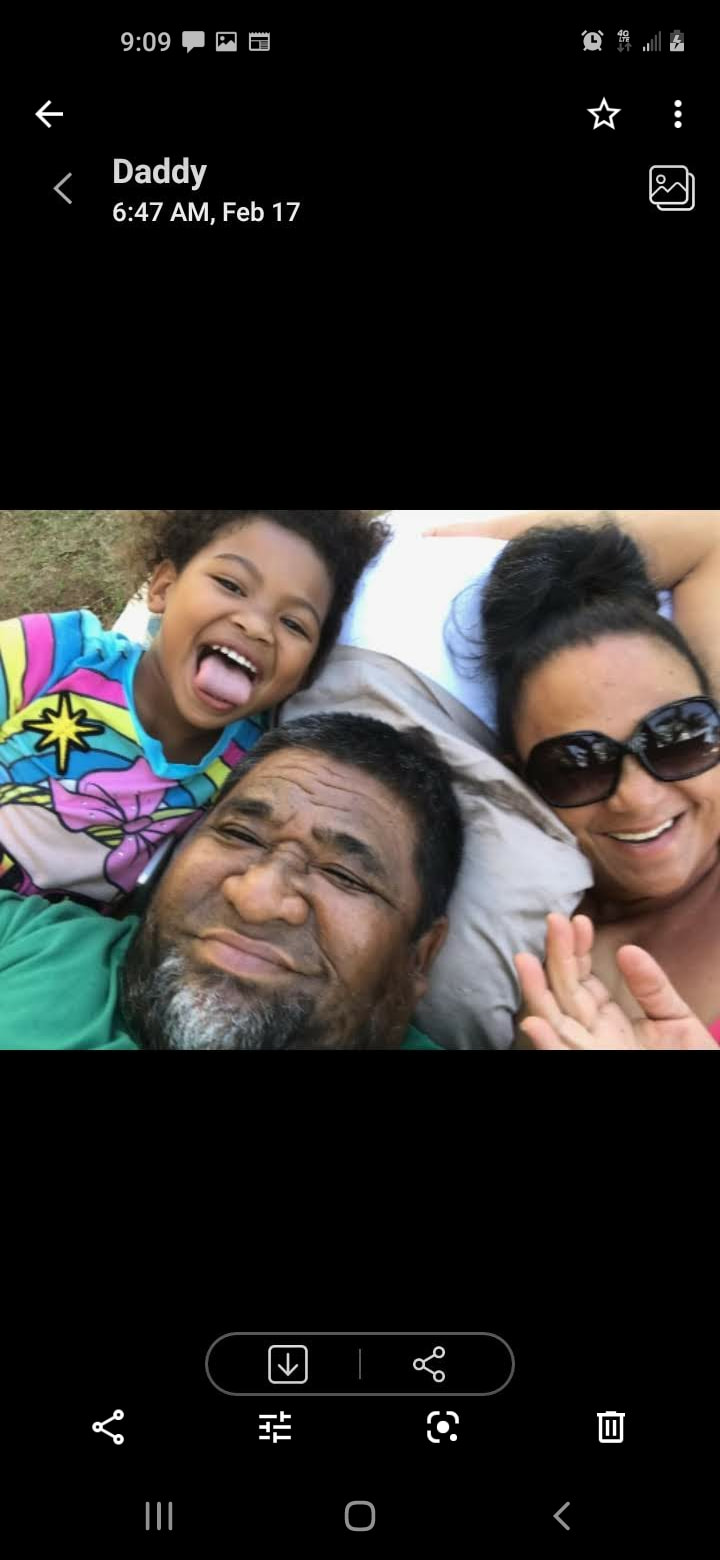|
How do you end a confusing relationship, when your husband calls you “awful” and “abusive” while professing love with flowers and expensive gifts?
*Yoshi experienced this during her marriage. The conflicting nature of the relationship made her anxious and insecure, taking a toll on her emotional and mental health. Good thing she reached out to Legal Aid - we took care of her legal battles so she can take care of herself and her children. “I suffered as a part of my husband’s abuses,” said Yoshi. “I did not have a house, a job, and a car when we got separated and divorced. Since I am from Japan, I did not understand the legal system and rights in Hawaii. I was really in trouble.” With a 4-year-old child in tow, Yoshi arrived in Hawaii in 2018 to marry her fiancé. She quickly got pregnant and gave birth to their child in June 2019. In 2020, she gave birth to their second child. The first case we helped Yoshi with in 2019 was for a Temporary Restraining Order (TRO), which the husband filed against her. “He knew the justice system really well and he used it to make her vulnerable,” said Makoto Messersmith, Staff Attorney, Hawai‘i Immigrant Justice Center (HIJC) at Legal Aid. During their separation, Yoshi’s husband wooed her back with presents and promises of love. He sent several messages and a video to show how sad he was without her. Yoshi returned, but her husband reverted to his verbally and emotionally abusive behavior. (He never hit Yoshi; he knew that he would be arrested if he did.) That same year, Yoshi had the strength to start the divorce process. HIJC and our Family Law Unit combined forces to win her case. “Throughout the divorce proceeding, her husband kept arguing that she was a child abuser, but the court found no evidence for that,” said Makoto. In addition, Yoshi’s husband withdrew her immigration petition saying she committed marriage fraud – wanting to get married just to get a green card. He also had her arrested for an “abuse” she committed against him. “That time was very difficult for her,” Makoto recalled. “Yoshi was going through a lot of stress and was devastated. She had no idea what was going on, she also recently gave birth to her third child. She was dealing with so many issues. She had expected her husband to be supportive but he became abusive to her instead and she was confused.” In 2022, the battle for Yoshi’s safety and peace of mind was won. She was granted the divorce and full custody of her children. She also received her green card, applying as a self-petitioner under the federal Violence Against Women Act (VAWA). Other legal issues we helped her with included applications for public benefits such as SNAP and Medicaid. “Makoto Messersmith-san interpreted and explained properly and gave me many information,” said Yoshi. “She gave me legal advice for everything that I did not know such as SNAP, WIC, DMV, VAWA… I could not do the procedures by myself, but Legal Aid supported me. Moreover, since someone helped me, I also received emotional support and I could have my peace of mind.” Yoshi is currently staying at a DV shelter with her children. Though temporary, she is now stable and has a place to live as she looks for a job. “She’s aiming to work in the tourism industry, either at the airport or in a hotel,” said Makoto.
0 Comments
“I’m extremely happy,” *Tricia told us after the divorce from her husband was finalized in April 2021. They had been married for 20 years. Between them, they share 7 children, most of whom are now adults.
Tricia was the opposite of happy when she contacted Legal Aid in April 2020. “She was angry, anxious, and depressed, a true victim of many years of abuse,” observed Paralegal Haunani Magalianes, Hilo Office. “Sometime during their marriage starting in 2001, her husband had abandoned her - physically, mentally and emotionally. As a result of the abuse and abandonment, Tricia was forced to finally get a divorce.” “I was in for the long haul, you know, till death do us part. I’m a one-man woman,” said Tricia. “But he would accuse me and say all kinds of nasty words, with no remorse for what he did wrong. I had to call the cops because I did not want to have any contact with him.” Part-Hawaiian and a Hilo resident, Tricia is not new to assistance from Legal Aid. She received legal help from us on multiple occasions, including advice on housing and a TRO against her husband, since she became a client in 2003. The quick resolution of Tricia’s divorce was refreshing for her, and definitely great news. “He was angry after receiving the papers, so he reacted badly saying he would not sign anything. Ultimately, Patricia’s husband chose to ignore the divorce action, which allowed us to obtain a default against him through the court,” said Haunani. “Patricia was extremely happy and relieved to be a free woman.” Tricia’s husband was given 20 days to answer after he was served the divorce papers. Because he failed to answer the Complaint for Divorce, a motion for default was filed and granted by the Court. Tricia is now living her best life. “I’m happy, I love my life. It’s the happiest I have ever lived,” she said. “I don’t need a man. I’m really happy and thankful.” “Tricia was beyond happy when she got divorced,” echoed Haunani. “I find that to be the case with many of our clients on the Big Island," Haunani said. "Many of our clients have been separated for a long time but they don’t know how to navigate the divorce process. When we are able to assist them, they are very relieved. We’re basically helping them start a new life. For me, it’s a privilege to be able to assist our community with their legal needs. I am very thankful to be in a position to be able to do it." All *Ramona wanted was for her son to be safe, which means having sole physical custody. She also wanted him to be heard, and to be happy, which includes a relationship with his father – Ramona’s ex-husband. If not a close relationship, at least a decent one.
We’re excited to report that after working with Legal Aid, Ramona was able to come to a custody agreement with *Raffy’s father, which started to repair the strained relationship between Raffy and his dad. Though Ramona agreed not to have full custody, her son Raffy ended up deciding to spend summer vacation with his dad on the mainland. Legal Aid’s representation in court had made Raffy feel heard and seen by people, especially by his father. It started with a temporary restraining order (TRO). Ramona was referred by the Child, Welfare and Family Services (CWS) in October 2020 after a huge altercation. Raffy reported that his dad *Simon had grabbed him and covered his nose and mouth, prompting Ramona to take legal action. “We filed an emergency custody motion seeking for Ramona to have sole custody of Raffy,” said Emily Hills, Staff Attorney, Family Unit. “Current situation that time was joint custody. The 50-50 was only on paper because Raffy only spent weekends with his dad, but his dad kept threatening to enforce the prior 50-50 time-sharing order, which would have been very detrimental for Raffy.” The TRO was filed, as advised by CWS. However, upon further investigation, it was discovered that what had occurred was a one-time incident. CWS did not believe there to be an ongoing threat of abuse to Raffy and the case was dismissed. “Raffy didn’t know how to respond to his situation and was suffering from serious depression and self-harming thoughts,” observed Emily. “So during the TRO process while Ramona had full custody, we requested a step-up custody schedule to ease the boy into spending more time with his dad. We also requested a court order for him to go to therapy. Raffy had been threatening suicide because he was unhappy at his dad’s house.” Emily represented Ramona in court, showing up in several hearings to negotiate with Simon’s lawyers who did not approve of the therapy and wanted to continue the 50-50 custody despite the actual practice of dad visiting only on the weekends. “I feel like this is the kind of case where full representation ended up helping the family,” said Emily. “When the other side is represented, Legal Aid has the opportunity to even the playing field. This is the case where the child needed to have a voice and mom wanted to make that happen because we were able to do full representation. Believe it or not, that seems to have made a bigger help.” The full-rep process included a continuance, negotiations, helping Ramona navigate the file pleadings, and talking with CWS. Ultimately, Ramona was able to get Raffy enrolled in a private school that would be a better fit for him, and we were able to negotiate Simon’s agreement to have Raffy change schools, which greatly improved his happiness. “My son is no longer running away from his dad like he did before which is relieving for me,” said Ramona. “He even told me that, although the court did not let him live with me full-time like he'd asked for, it at least made his dad ‘change’. So long as he perceives his dad as a changed man, I'm okay.” It was a good new chapter for all of them, as the case was successfully closed in October 2022. “What made Ramona happy with the case was that we gave Raffy a voice,” said Emily. “He was able to talk to custody investigators and air his opinion. He felt listened to, he knew that his mom was fighting for him. And once his father said ‘you don’t have to be with me’, that’s when Raffy wanted to spend time with him.” Raffy is currently going through therapy and his mental health is better. Although he continues to struggle with emotional regulation, according to Ramona, his depression seems to have subsided. “I don't know what the future has for us, but I sincerely hope that Raffy will have a better life ahead," said Ramona. "As hard as the whole journey has been, particularly for him, I am optimistic and hopeful that his tomorrow will have a better outcome for him. I am very grateful Emily is the one I travelled this emotionally painful journey with." "Through all this, I was fortunate to have Emily as my attorney,” Ramona added. “I will always be grateful that I found in her someone I could talk through the hardest times of my life.” One of the biggest signs of a grateful client is when they donate back to Legal Aid.
*Esther did just that after a successful guardianship case handled by Senior Staff Attorney Joni Domingues, Kupuna Legal Aid Services. Esther, 78, has been her older sister’s caregiver since 2020 when her sister moved to Esther's house after being evicted and her belongings placed on the street. Esther's sister had missed rent due to the onset of dementia. The challenge of caring was physical, emotional, and especially financial for Esther who lives alone (her children are all out of the house) and only survives on her monthly social security pension. She neither had extra hands nor cash to help her. “I was worried because we cannot touch her money and there was not enough to buy groceries or pay for bills,” she said. If Esther applied for guardianship, she would be able to legally access her sister’s money and use it to take care of her. Through a social worker, she got in touch with Legal Aid and the application process began. “Esther seemed emotionally exhausted and at her wits' end about what to do with her sister who was very challenging to care for,” recalled Joni. “And yet Esther also had such compassion for her and wanted to do the right thing.” Joni persevered with Esther in meeting the requirements, including locating another sibling for consent. “She was very supportive and patient, she helped me from beginning to end,” Esther said. In May 2022, after a virtual court hearing, Esther finally received the guardianship papers. “The hearing went very smoothly,” said Joni. “Our partnership with the referring hospital and social worker has enabled us to directly utilize a resource that was never available to us before. Because Esther was concerned that her sister could become agitated at the hearing, the social worker agreed to attend to provide support.” “I was so amazed and really thankful and grateful that Joni helped me out all the way,” said Esther, who feels relieved to be her sister’s legal guardian. “I really admire Joni. You can tell how sincere she is in helping me out because even during the pandemic, she came over to my house to help with the paperwork because I told her I was not good at communicating using the computer. She is very helpful and resourceful.” Right now, Esther is currently looking for a foster home. She still prefers a professional to properly care for her sister. “I am thrilled that our Kupuna Services was able to offer Esther and her sister help in their time of need,” Joni said. Long-time Legal Aid donor Susan Ichinose has a legitimate reason to believe that she is investing in something worthwhile – she has seen the organization up close and personal as a member of its Board of Directors.
Susan served on the Board from 2005 to 2017, holding several positions such as President (2013-2014 and 2014-2015), Vice-President (2007-2008, 2008-2009 and 2012-2013) and VP-Secretary (2011-2012). She described fellow members as “effective, socially conscious, and sincere.” And that’s everyone, she says, not only lawyers but community directors who represented the clients. “I believe strongly in Legal Aid,” says Susan, who saw the organization transition through leadership, including the rise and growth of Nalani Fujimori Kaina, Legal Aid’s Executive Director. “Nalani is a dynamo and a game-changer. She is a strong administrator, but more importantly, she is a visionary. She sees things and people not just as they are but as what they can be. Beyond the bounds of Legal Aid, she can be a future leader of Hawaii if she so chooses. Getting to work with her, and to know her, has been a privilege that I may not have experienced but for my service on the Board.” Susan is a former career commercial litigator who now concentrates entirely on neutral work – as an arbitrator, mediator, independent factfinder and workplace investigator, and expert witness. For public service, she was elected by members of the Bar to sit on the Judicial Selection Commission (2008-2014), and served as its Chair (2012-2014). She recently served as a member of the Judiciary's Civil Justice Improvements Task Force, and has been a Board member of the Mediation Center of the Pacific since 2018. How did you find out about Legal Aid? It’s a renowned national organization with a long history of providing free legal services to needy persons in the community. So I've known about Legal Aid for a long time, even before I became a lawyer. Why did you decide to become a Board member? Like many lawyers, I believe strongly in community service. Legal Aid is definitely in the forefront of that. And so when the HSBA called for nominees to serve on the Legal Aid board, I was happy to volunteer and honored to be selected. Describe your experience serving on the Board. It was a tremendously rewarding experience to serve on the Board. I got a chance to contribute to Legal Aid's meaningful community service, and was rewarded also by getting to know other Board members who served with me. Wonderful people like Howard Luke, Joe Boivin, Jodi Yamamoto, Lowell Chun Hoon, Robin Kobayashi, and others became my lifelong friends. I was honored to work with Legal Aid’s wonderful staff members, not to speak of the lay Board members like the late, great community activist Alice Greenwood. I believe I got more out of my serving on the Board than Legal Aid ever did. What makes Legal Aid worthy of your support? Legal Aid is the only non-judicial organization I know of that has its own staff lawyers and permanent professional support staff providing free legal services day in and day out. It's always there, ready to be counted on to assist with legal advice. This includes representation in social service agency proceedings, and, in appropriate cases, court representation. Even if you can't contribute time, every dollar you can spare uplifts someone's hopes, and the community as a whole. Born and raised in the Hyogo Prefecture in Japan, Hitomi "Makalani" Imai, a Legal Aid client, never imagined she would live in Hawaii – “a beautiful land, with such beautiful energy,” she describes.
She is excited about her future as her life has turned around in surprising ways, and has adopted the Hawaiian name "Makalani" (eye of heaven) to symbolize a new start. She is also launching her life coaching program for fellow Japanese early next year. “I’ve always been thinking of my experience because emotional abuse is a big thing,” says Makalani. “My whole life is up and down, and I didn’t have the confidence. Now I know how to get the confidence. And I know many Japanese struggle with the same thing because of the culture. So, I decided to become a spiritual life coach.” There had been a season in Makalani’s life when she was unable to speak and stand up for herself, and Legal Aid helped her get through it. It started in 2017 when she arrived on Oahu and married a man she met online after several months of courtship. They had a rocky beginning. He had broken up their engagement once for “not keeping some promises.” One promise was for Makalani to stop communicating with friends. About a year into the marriage when Makalani applied to become a lawful permanent US resident (get a green card), her husband vacillated between supporting and not supporting her application. He threatened divorce and told her to go back to Japan. She finally decided to divorce him when he denied support on the day of Makalani’s immigration interview. Makalani was resigned to accept her fate until she found out about Legal Aid through a friend. Legal Aid stepped in and negotiated with her then husband, eventually getting her to receive financial compensation. “The Legal Aid attorney sent him a beautiful, strong, confident email to negotiate,” recalls Makalani. “It is not about the money, but it gave me the confidence that I’m okay, that I will be fine. With Legal Aid’s support, I finally stood up for me.” The support Makalani received from Legal Aid staff went beyond the legal battle. They were there for her emotionally; they became her pillars of strength. “Whenever I start to worry, the attorney and the paralegal always get back to me,” she says. “They were very supportive all the time. They are amazing!” The divorce was finalized in 2019, and in April 2021, Makalani finally received a green card, applying as a self-petitioner under the federal Violence Against Women Act (VAWA). In a few years, she plans to apply for US citizenship. “Legal Aid helps immigrants who are in a position of being powerless. They think that they have nowhere to go. But Legal Aid helps them and lets them feel they are important individuals.” Now, while preparing to launch her business called “Aloha Style Services,” Makalani works with a construction company using her administrative and accounting background. She also freelances as a translator of information materials from English to Japanese, and is currently in a supportive, loving relationship. “I’m doing great,” she says. And her smile says it all. Advocating for justice by making legal services accessible – that’s one of the passions of Charles Greenfield, a longtime supporter, and former Executive Director of Legal Aid Society of Hawai’i.
The spark started when Charles, who also goes by “Chuck,” was a young legal aid lawyer in San Jose, California. As his interest grew, it relocated him to different states and countries. He served in various roles as lawyer, consultant, and executive director - in Northern Virginia, Washington D.C., Guam, Vietnam, Myanmar, Cambodia, Saipan, the Federal States of Micronesia, American Samoa, and the Republic of Palau. Chuck’s time in Hawaii as Legal Aid’s Executive Director from 2006 to 2009 was short but meaningful. He faced three significant challenges when he started at Legal Aid: (1) the high number of residents facing critical civil legal needs throughout the islands; (2) a Legal Services Corporation restriction preventing Legal Aid from representing Hawaii residents who were from the Federated States of Micronesia, Republic of the Marshall Islands, and the Republic of Palau; and (3) Legal Aid’s low salary levels. To meet the tremendous need for civil legal services, Chuck aggressively promoted the telephone intake system, now called “Intake,” expanded Legal Aid’s outreach efforts, and increased and improved partnerships with community groups and government entities. Chuck led the effort, with support from others, to successfully convince the Board of Directors of the Legal Services Corporation to change its regulation to allow for representation by Legal Aid of Micronesians living in Hawaii. In an attempt to raise salaries paid to Legal Aid employees, he received the support of Legal Aid’s Board of Directors to increase salaries. Another achievement was working in collaboration with others to establish the Hawaii Access to Justice Commission. Chuck was a member of the first Hawaii Access to Justice Commission. “To make justice real, we need to ensure that people have access to legal aid. We can help them get relief, or fight discrimination,” says Chuck. “There are so many people whose lives are being trampled on because they don’t know their rights.” Chuck is now retired with 45 years of legal aid work under his belt. But he is far from done in helping the community. He recently finished serving as interim executive director for American Samoa Legal Aid, and also retired as general counsel for Micronesian Legal Services Corporation. He lives on the Big Island. He is calling on lawyers to lend a hand, or a voice, in this advocacy. “As lawyers we have an obligation to see that people are treated fairly under law,” says Chuck. “We have an obligation to see that something is done to help those with unmet legal needs. One way is to contribute money or time to Legal Aid.” According to Chuck, Legal Aid Society of Hawai’i is one of the premier legal aid programs he has seen throughout the country with its “innovative programs, excellent leadership team and wonderful staff.” “The future is bright for the organization, but it needs money and volunteer lawyers,” he stresses. “It is important for the community in Hawaii to contribute to Legal Aid so we can help them staff up for the challenge and help bring positive outcomes for residents. We need to help make justice real for our community.” That’s why he donates to Legal Aid, Chuck says. “So many people are facing critical challenges. There is certainly something we can do about that. Good legal advocacy can bring them much-needed relief.” When Melissa Wong stepped into Law School in California about a decade ago, she envisioned herself working in a private or government firm, never for a non-profit.
But that didn’t happen. After graduation, she found herself back in Hawaii and without a clue which path to take. A friend suggested applying at Legal Aid. It was an easy decision for Melissa, having interned here as a Summer Law Clerk. “What I do is very rewarding and meaningful. I’m glad I followed my friend’s suggestion. I’m grateful that God had a different path for me,” shares Melissa, now the Senior Staff Attorney in the Public Benefits Department at Legal Aid. “I know that every day I come to work I can have a big impact and make a difference in someone’s life.” That someone could be a jobless father, a food-insecure mother, an abused child, a financially strapped kupuna, or a homeless family. Thousands of people seek Legal Aid’s services every year. Melissa directly supports families get back on their feet and those who face barriers to obtaining the social service benefits they need to help themselves. It has been five years since she started; Melissa’s passion to help has not wavered. She is a staunch advocate for education, constantly encouraging her clients to be pro-active. “I try to empower them that they could make a difference especially if they experienced injustice,” says Melissa. “They have a powerful voice.” One client that stands out is a woman who has been claiming social security benefits since 2017. Her physical and mental a disability would certainly qualify her for social security, but she kept getting denied. Melissa stayed with her, appeal after appeal, until they were granted a hearing. In July this year, after four years, the woman finally got approved. “We both cried when we found out,” says Melissa. This September, Melissa won another appeal for a client whose GA benefits were terminated by the Department of Human Services. DHS had refused to qualify her based on her physical or mental disability. Melissa strongly argued for the case, and they won. With these success stories, and many more, Melissa admits she couldn’t see herself working anywhere else. She loves her work and the clients that she serves. “When I come home after a day’s work, I feel satisfied. There’s a special satisfaction you feel knowing that you helped someone.” The spam musubi Shannon Clark receives from a friend who owns a Japanese grocery store is one of the highlights of her day. She would eat all three at once, licking her fingers with a satisfied smile.
Eating spam musubi shouldn’t be that unusual except Shannon lives in Chicago where it’s almost a delicacy. So when Shannon eats, she eats with gusto, satisfying her taste buds and nostalgia. “I love Chicago, but Hawaii is where my loyalty and heart remain,” says Shannon, a Hawaii-born wahine who found her niche in the city as a data privacy lawyer. “My family has been in Hawaii for a long time. Hawaii always feels like home.” Shannon donating to Legal Aid Society was like eating spam musubi – it satisfied her passion to help the less advantaged and brought back memories of the summer of 1994 when she interned as a law clerk while a student at the Indiana University School of Law. “Having worked with Legal Aid, I have confidence in their mission,” says Shannon. “I have a lot of respect for the staff because what they do takes a lot of commitment. The people I worked with were dedicated and good at what they were doing." With the immersive clerkship, Shannon gained valuable experience learning from lawyer mentors and paralegals, going to court, dealing with the practical aspect of client needs, and developing her research skills. Of course, she was also happy to be back in Hawaii with family and friends. “I see a big need especially because of COVID and so many people being out of work,” she says about the current pandemic. “One of the experiences I had when I worked with Legal Aid was the work with housing and Social Security benefits. And because COVID has unfortunately shifted the imbalance a little more, there would be an even more pressing need.” Shannon meets this need by donating to different charities every year, especially choosing to support organizations that provide legal services to the underserved. “Every little bit helps. And collectively, we can make a difference.” Many families need legal services and do not have the financial means to access justice. Join Shannon and the rest of us in helping them recover from the effects of the pandemic. My daughter, Jerelynn, passed away from medical complications about two years ago. She was only 29 years-old, fighting for her life at the hospital, when my husband and our granddaughter, Tamia, saw her for the last time. Tamia was only 4 years-old and she saw everything – the doctors trying to revive her mother. It was horrible.
We were worried about what would happen to Tamia. I was in prayer all the time and could not eat, sleep, or think, because I was so afraid that someone was going to come and get the baby. I had a family friend who suggested that I call the Legal Aid Society of Hawaii to ask about guardianship and adoption for Tamia. I was so relieved when I met Mr. Russ, our Legal Aid attorney, for the first time. He was patient, honest, and knowledgeable. He told us straight that this would be a long process because of some of the issues we were facing, and he really helped us to understand how the court system worked. If it weren’t for Legal Aid, there’s no way we could have afforded to hire an attorney to adopt Tamia. Tamia is doing much better today. She is not crying anymore. When we visit her mother’s grave on Sundays after church, Tamia plans what kind of flowers she wants to bring and looks forward to packing a suitcase of things to show her mom. She loves to draw and writes little notes for her mom, too. We do our best to continue what Jerelynn wanted for Tamia. Education was important to Jerelynn and she enrolled Tamia at Kamehameha Schools for preschool. Tamia is now in kindergarten and loves school. Jerelynn was such a hard-working, loving, and caring single mother. We want to do exactly what she did for her baby. It’s that memory of her that keeps us going. I want people to know that Legal Aid gave us a chance and fought for us, they felt our pain and walked this journey with us. They’re for real, down to earth, knowledgeable people, who helped us to keep our family together when everything felt like it was falling apart. - Tammy Lee Pii |
Categories
All
Archives
May 2024
|
|
Home
Get-Help Resources Fair Housing hawai‘i immigrant Justice Center Volunteer JOBS Contact Us Join Our Email List 
Translate this site into
another language |
|
|
THE LEGAL AID SOCIETY OF HAWAII DOES NOT HELP
WITH CRIMINAL OR PERSONAL INJURY MATTERS.
PLEASE CONSULT A PRIVATE ATTORNEY.
computer safety
Websites you visit may be viewed by someone else later.
always clear your browsing history after searching the web.
consider using a public or friend’s computer if you are concerned about someone viewing your browsing history.
Websites you visit may be viewed by someone else later.
always clear your browsing history after searching the web.
consider using a public or friend’s computer if you are concerned about someone viewing your browsing history.
Legal Aid Society of Hawaii is a recipient of federal funding. Legal Aid does not exclude, deny benefits to, or otherwise discriminate against any person on the basis of race, color, national origin, disability, sex, or age in admission to, participation in, or receipt of the services and benefits under any of its programs and activities.
How to file a complaint: If you believe you have been subjected to discrimination by Legal Aid, there are 3 ways to file a complaint with the U.S. Department of Health and Human Services, Office for Civil Rights:
Click here for more information.
GRIEVANCE REGARDING DENIAL OF SERVICS OF QUALITY OF SERVICES
ANY CLIENT OR APPLICANT CAN FILE A GRIEVANCE TO COMPLAIN ABOUT A DENIAL OF SERVICES OR QUALITY OF SERVICES PROVIDED BY THE LEGAL AID SOCIETY OF HAWAII.
CLICK HERE FOR MORE INFORMATION.
How to file a complaint: If you believe you have been subjected to discrimination by Legal Aid, there are 3 ways to file a complaint with the U.S. Department of Health and Human Services, Office for Civil Rights:
Click here for more information.
GRIEVANCE REGARDING DENIAL OF SERVICS OF QUALITY OF SERVICES
ANY CLIENT OR APPLICANT CAN FILE A GRIEVANCE TO COMPLAIN ABOUT A DENIAL OF SERVICES OR QUALITY OF SERVICES PROVIDED BY THE LEGAL AID SOCIETY OF HAWAII.
CLICK HERE FOR MORE INFORMATION.
Legal Aid Society of Hawai‘i ©2020 All Rights Reserved

